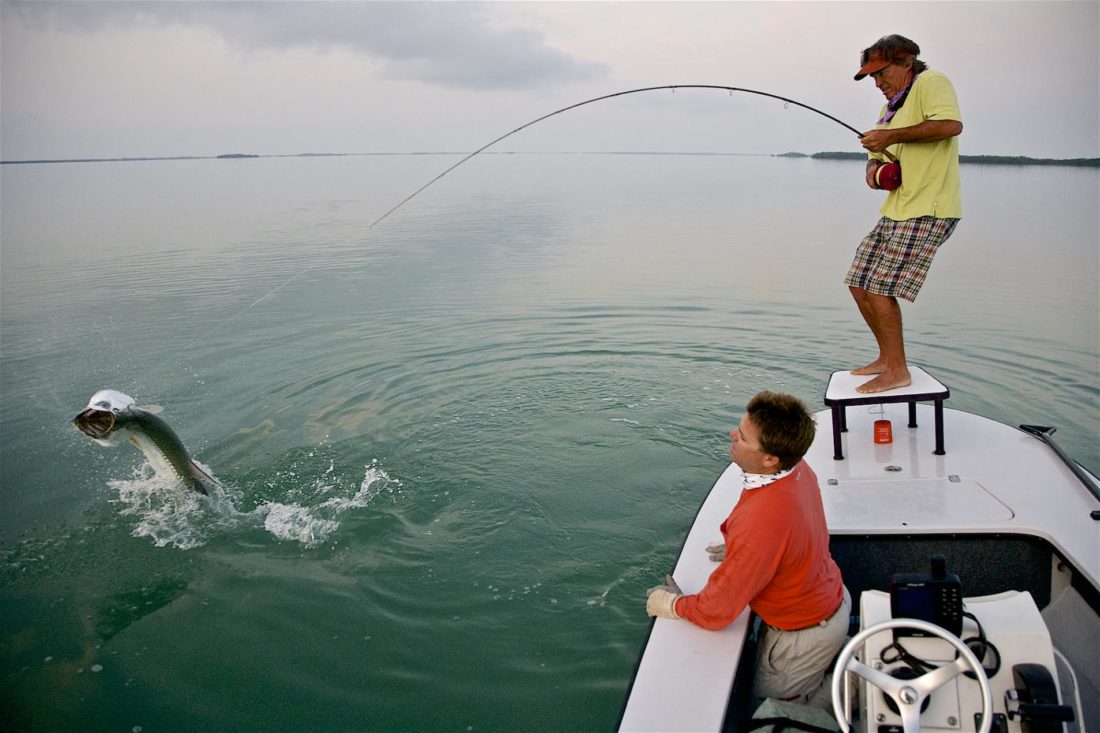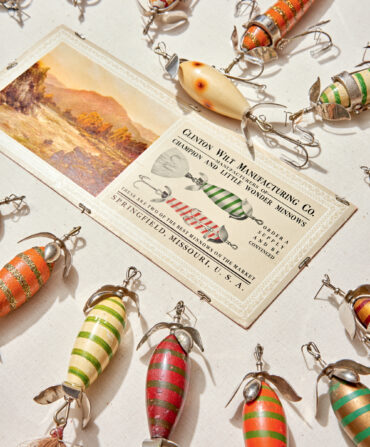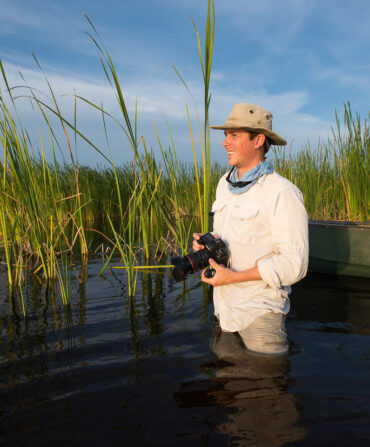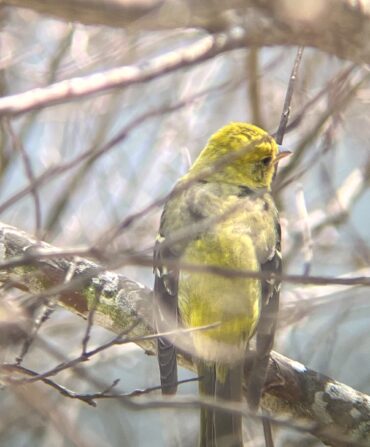Andy Mill, the former U.S. Ski Team member and champion tarpon tournament angler, stood at the podium in a grand room of an august Manhattan club, wiping tears from his eyes. Mill, the recipient of the Bonefish & Tarpon Trust’s Curt Gowdy Memorial Media Award at its annual New York Dinner, was recalling how much the sport of saltwater fly fishing had meant to him. Through his advocacy, television shows, innovations and general joie de vivre, he has played a significant role in the astounding growth in saltwater fly game, particularly for bonefish and tarpon. His life, as he said, “has been so enriched by fishing.”
But that enrichment, he explained, has come with a big responsibility: To protect and preserve the resource.
It’s a responsibility that Mill has shouldered exquisitely well. Throughout his fishing career, he has always put conservation on the forefront, through his numerous speaking engagements, his seminal book on tarpon fishing (A Passion for Tarpon), his popular podcast, Mill House, which he co-hosts with his son Nicky, and his tireless advocacy for the BTT. “Their work on clean water, healthy habitats, and fisheries on our Southern saltwater flats is invaluable,” Mill said.
It’s also work no one else was really doing before the BTT came along.
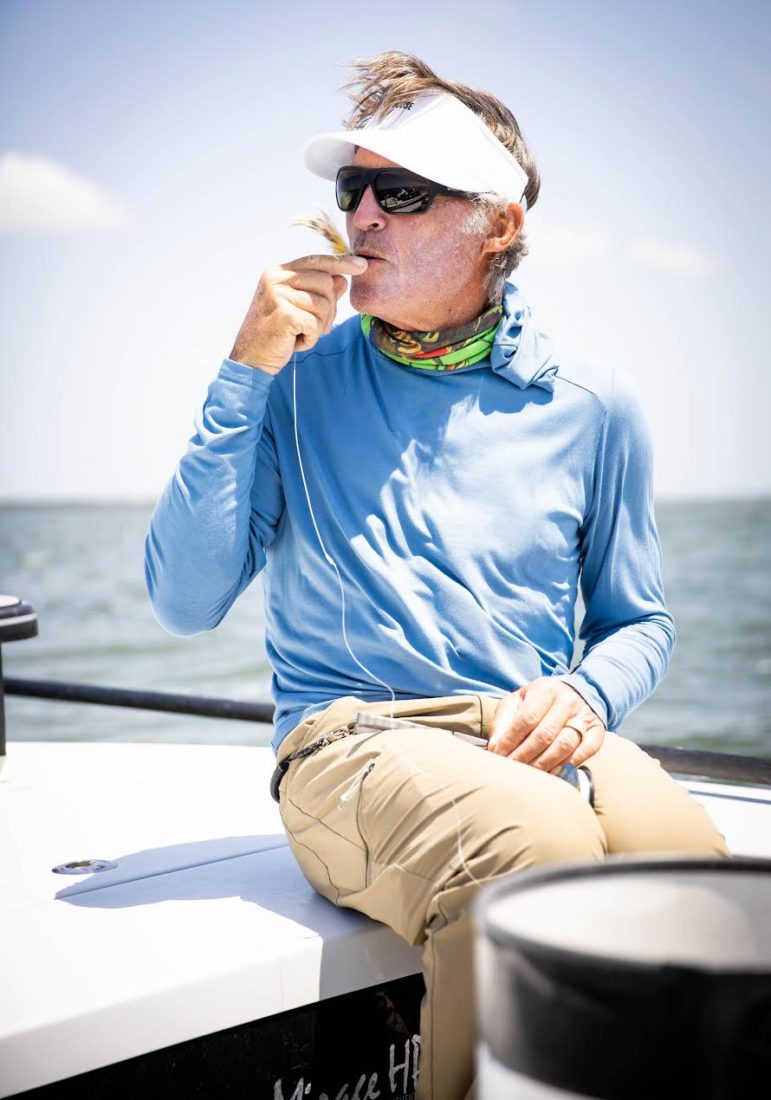
* * *
The BTT was the brainchild of a handful of dedicated saltwater anglers in the Florida Keys who were looking for some way to protect the species they loved—bonefish, tarpon and permit—and the priceless flats that those fish inhabit. Though the BTT remained small for many years, it was the little conservation organization that could, pulling off grand feats—like helping to make tarpon a protected gamefish in the state of Florida—through fundraisers held in the homes of board members.
Now, twenty-five years after its founding, the BTT has grown into the most significant conservation organization in its field. It continues to punch far above its weight when it comes to conservation science, advocacy, and education work in the Keys, the Everglades, the Bahamas, and Belize. In recent years, the organization has tracked migration routes of tarpon (something never done before), helped create spawning sanctuaries for permit, and initiated the largest mangrove restoration project in the history of the Bahamas. A few months ago, the BTT announced that its scientists had found pharmaceutical contaminants in Keys bonefish, a disheartening discovery that made headlines across the globe.
A major source of the funding for this critical work comes from the BTT’s annual New York City dinner, which is now in its eleventh year. This year’s event sold out in a matter of weeks, thanks in large part to its honorees—Mill and the fishing guide Paul Dixon.
* * *
At its essence, the ultimate job of a fishing guide is that of a dream-maker—that is, the act of turning the potentiality of a client’s dream into kinetic reality. Few guides in the world have been more proficient at this alchemy than Paul Dixon, who has plied his trade now for the better part of four decades.
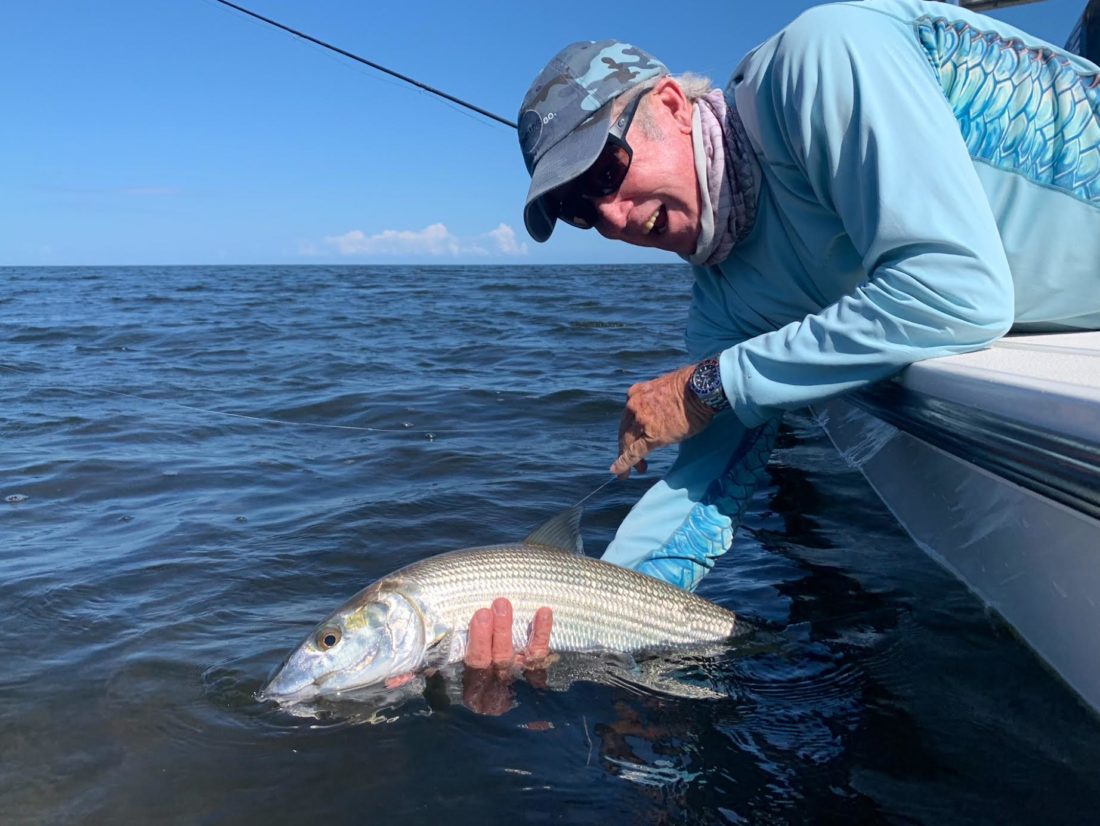
Dixon splits his guiding time between the Keys and New York’s Long Island. He has witnessed, firsthand, the decline of the population of striped bass in the northeast and the degradation of the habitat in southern Florida. Those dreams for which he is responsible, he knows, are only able to come true if the fish and habitat remain healthy.
At the dinner, Dixon was presented with the Lefty Kreh Award for Lifetime Achievement in Conservation. It was a fitting tribute. Despite his strenuous and time-consuming day job, Dixon is easily one of the fly fishing world’s greatest conservationists—and, until now, perhaps one of its most underappreciated. Much of the work Dixon has done has been behind the scenes. He’s been critical in the fight to conserve striped bass stocks, galvanizing guides and anglers to show up at fisheries meetings. He has acted as a whip and fundraiser for Atlantic salmon. And he’s been there from the beginning of the BTT and even founded the New York Dinner.
In his speech, Dixon talked about how his father would take him to the jetty in Newport Beach, California, and reminisce about the great fishing he had there before the fish stocks crashed. His father would gaze wistfully at the water, and begin a story with: “I remember when…”
“Our jobs as anglers and conservationists,” Dixon told the crowd, “is to make sure we never have to say those words.”


